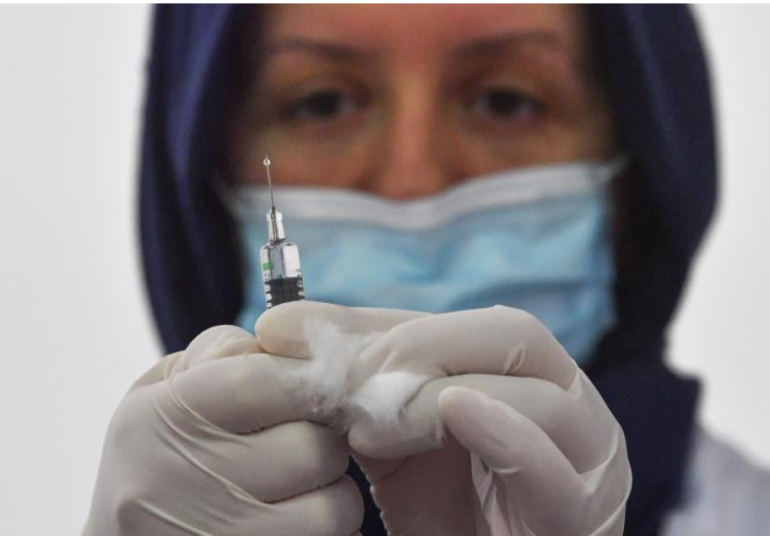Early vaccine responses are important in shaping both chemical and cellular immunity to SARS-CoV-2. The study of inflammatory cytokines, ie substances produced after vaccination, seems to be able to predict the response to the coronavirus and help optimize the efficacy of mRNA vaccines.
A study by EKPA, in collaboration with the Retrovirus Department of the National Institutes of Health, published in the prestigious international journal Cell Reports, highlights the significant differences in the BNT162b2 mRNA (Pfizer / BioNtech) vaccine response between healthy individuals who have not had a previous contact with SARS-CoV-2 and people with COVID-19.
The team of EKPA professors Evangelos Terpos and Thanos Dimopoulos (rector of EKPA), in collaboration with the team of professors Georgios Pavlakis and Barbara Felber from the NIH, studied the production of 70 inflammatory cytokines in response to the body after the first and second dose of the vaccine and correlated their levels with the production of neutralizing antibodies to SARS-CoV-2.
The researchers identified a group of inflammatory cytokines, including interleukin (IL) -15, interferon (IFN) -γ and CXCL10 that increased after the first dose of the vaccine, which was enriched with the cytokines TNF-α and IL-6 that increased the second dose of the vaccine. The increase in these inflammatory substances was associated with the production of antibodies against the coronavirus.
In people who had previously been infected with COVID-19, only one dose of the vaccine resulted in such a strong induction of inflammation, and a corresponding increase in the production of neutralizing antibodies, which was similar to that observed after the second dose of the vaccine in those who had not been previously exposed to the virus.
According to the results of the research, after the vaccination we have the development of inflammation (through the cytokines of inflammation) which leads to the production of antibodies against the spike protein of the virus. In people who have not been exposed to the virus, the inflammation is mild the day after the first dose of the vaccine, and increases dramatically the day after the second dose of the vaccine with a large increase in neutralizing antibodies to the virus. These antibodies reach their peak two weeks after the second dose of the vaccine.
In contrast, in subjects who had been exposed to the virus and had symptoms, the first dose of the vaccine resulted in significant inflammation the day after the first dose of the vaccine and was accompanied by the production of a high titer of neutralizing antibodies to the virus as early as the first week after vaccination with the first dose. The second dose of the vaccine in these people had no further increase in inflammation, only maintaining it at levels similar to those after the first dose of the vaccine.
These results have significant potential implications for future public health recommendations. It seems that one dose of vaccine is enough for those who have been symptomatic COVID-19, as they produce intense inflammation after the first dose of the vaccine and correspondingly high titers of neutralizing antibodies.
This picture is similar to that seen in people who did not come into contact with SARS-CoV-2 after the second dose of the vaccine. It is emphasized that the second dose in these individuals did not have an additional development of inflammation and therefore toxicity, ie it has no risk to their health.
